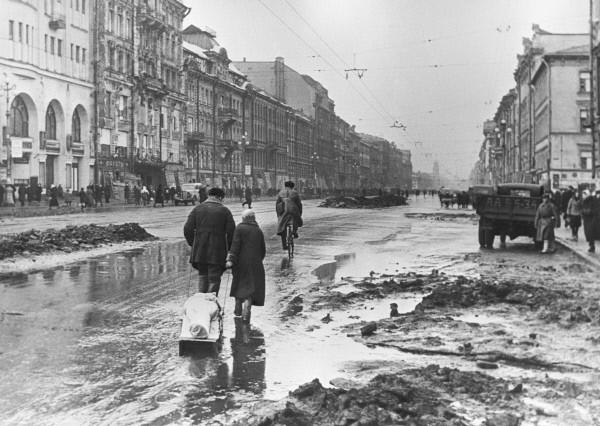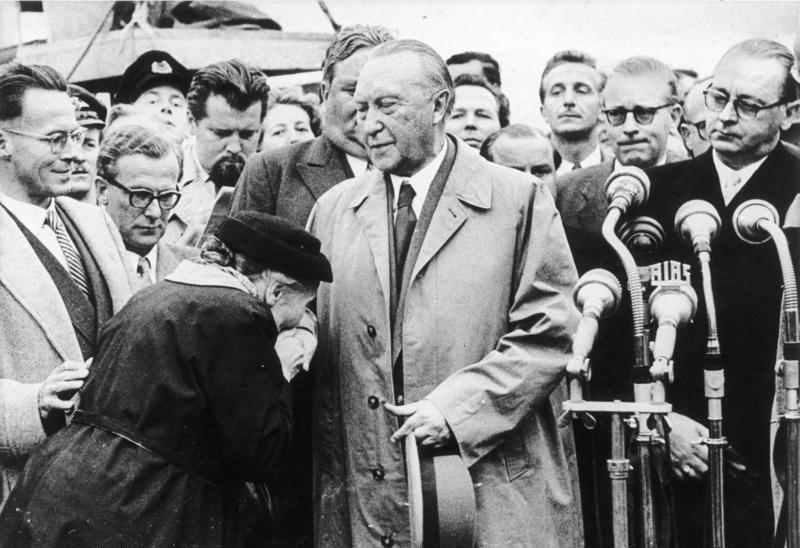"The nature of the dictatorships determined the savage character of the conflict" http://www.bbc.co.uk/history/worldwars/wwtwo/soviet_german_war_01.shtml

Leningraders during the Siege circa https://en.wikipedia.org/wiki/Siege_of_Leningrad.
The same could not be said of the war between the Germans and the Russians during the Second World War. Professor Overy explains: "The so called barbarisation of war has a number of explanations. Conditions were harsh for both sides, and losses were high. German forces entered the USSR with instructions from Hitler's headquarters to use the most brutal methods to keep control and to murder Communist commissars and Jews in the service of the Soviet state." (http://www.bbc.co.uk/history/worldwars/wwtwo/soviet_german_war_01.shtml)
From the beginning, Hitler preached that the Russians were "untermensch" (subhuman). This was evident in the way the Germans treated the citizens of Leningrad. The Siege of Leningrad, which lasted from September of 1941 to January of 1944, will never be forgotten by Russians. The 842 -day seige caused the largest loss of life in modern history: one and one half million soldiers and civilians were killed or starved to death. Another 1.4 million Leningraders, mainly women and children, were evacuated, many of whom died of starvation or bombardment. Others died from exposure to the frigid -30C temperatures that first winter.
The Siege, along with other barbarities committed by the Germany Army, stirred up journalists like Ilya Ehrenburg who preached: "We shall kill. If you have not killed at least one German a day...you have wasted that day. Do not count days...do not count miles. Count only the number of Germans you have killed." Ehrenburg dehumanized the enemy.
It is no surprise then that when the Russians invaded Germany in late 1944, they did so with hatred in their hearts and revenge on their minds. Rolling over the hills of East Prussia, they pillaged houses, burned crops, and raped German women en masse.
The barbarisation continued even after the Second World War ended on May 8, 1945. While the British, Canadians and Americans released all prisoners of war by 1947, the Russians were not ready to bury the hatchet. Many German POWs were not sent home from the Soviet Union until 1956, more than a full decade after the war's end, some so emaciated they were unrecognizable.

Grateful mother thanks Konrad Adenauer for his role in the release of her son, one of 15,000 German POWs freed by the Soviets in 1955 courtesy https://en.wikipedia.org/wiki/German_prisoners_of_war_in_the_Soviet_Union.
No comments:
Post a Comment